Merry Christmas and a Happy New Year to the HIStalk crowd. I wish you the joys of the season!
News 10/9/15
Top News
Cerner opens client testing of its SMART on FHIR standard that has been released to Millennium production. Demonstrating their SMART on FHIR solutions at CHC next week are VisualDX, xG Health, and Boston Children’s Hospital. The company is also calling for interested developers to become part of its ecosystem. This is what the market says it wants – an EHR vendor (one of only three big inpatient ones) that opens its system to third parties to give more choices to its users. It’s a pretty big deal if you ask me.
Reader Comments
From Light Brigade: “Re: Meaningful Use. Do I detect little interest in the new regulations?” You certainly do from me. The Meaningful Use program, not unexpectedly, has turned into just another government program administered by its own well-intentioned but self-preserving bureaucracy. It has wasted an immense amount of industry energy and taxpayer billions with questionable results. We would have been much better off, as I said when it was first announced as a stimulus program, letting the free market dictate the health IT market rather than bribing providers to either use products they already owned a bit differently or to buy EHRs that weren’t selling without Uncle Sam’s subsidy. I just don’t care any more. The government already sets our healthcare agenda as the largest healthcare payer and provider, getting providers to sell out to keep the Medicare and Medicaid payments flowing while complaining constantly, and MU has turned into one more carrot-then-stick distraction and providers unwittingly made possible by taking those early stimulus checks. The government should be involved in setting standards, but not dictating the terms of provider-patient relationships or mandating technology use. I’m not sure all that money and energy made much of a positive difference for patients whose concerns are more about the cost and availability of insurance and care delivery rather than what’s running on the computer in the exam room. We should be talking about how to fix our screwed up healthcare system rather than how to automate the existing mess using old IT systems that chase old incentives.
From Comfortably Numb: “Re: clicks. A nurse told the Health IT Standards Committee recently that it took her more than 500 clicks to admit a patient. That tells you all you need to know about EHR usability.” Actually, that tells you all you need to know about the US administrative requirements for delivering care and accepting insurance company payments. The number of clicks is a reflection rather than a cause of that complexity. Everybody loves shooting the EHR messenger (Epic in this case) instead of the endless requirements by cheap-seaters for clinicians to capture irrelevant, non-medically contributory patient information.
HIStalk Announcements and Requests

I’ve been playing around with some of the health insurance sites like Healthcare.gov and Stride Health (which seems to be loaded with technical problems related to removing/adding prescription drugs from the user’s profile) under various scenarios. It’s interesting to me that despite their high cost, most of the medical insurance plans those sites suggest don’t kick in at all until the member has paid a $6,000 deductible – the member pays the entire cost of visits, prescriptions, etc. before the plan starts paying 100 percent. The high cost of hospitalization and prescription drugs means that a lot of people will then incur the full $6,000 cost plus the annual premium of around $3,000. I’m not sure all that many Americans have an extra $9,000 lying around. It also strikes me that it’s a leap of faith anyway since you can’t see the fine print when signing up, like which providers are in the network, which ones are accepting new patients, and the cost of any specialty drugs that are covered minimally if at all. It seems to me this means:
- People may not bother to buy insurance since it only covers unpredictable catastrophic expenses.
- Even people who buy insurance may not be able to pay their high deductibles.
- Both of these scenarios, plus higher medical and insurance costs, may make it just as hard for providers to get paid as pre-ACA.
- Patients with more financial skin in the game will have incentive to shop around and ask more pointed financial questions of providers.
- The ridiculous out-of-network scam is getting worse. ED and hospitalized patients can ask everyone in sight whether they’re in-network providers and still be stuck with huge bill from a provider they didn’t choose. This continues to create hospital trust issues. Imagine if you took your car in for a $30 oil change and later received bills for hundreds of dollars from mechanics the oil change place called in without your knowledge.

Ms. Palmer says her Mississippi third grade students are enjoying the classroom library of 90 books we provided via a DonorsChoose grant, to the point that several students read more than 20 of the new books in the first two months after receiving them.
Listening: new hard rock from Brooklyn’s Highly Suspect, who sounds like Queens of the Stone Age at times. Also: new from Moon Taxi, a polished indie-progressive band from Nashville that’s quickly becoming one of my favorites. They’re on tour playing mostly small venues like the Orange Peel in Asheville and the Majestic Theater in Madison.

I say goodbye and thanks to TriZetto, an HIStalk and HIStalk Practice sponsor since 2011 who, now that they’ve been acquired by Cognizant, demanded brusquely that we cancel their months-overdue sponsorship in asserting that “nobody here has ever heard of HIStalk” (apparently not including the several dozen of its employees are on the email list and whoever manages their Twitter account since they follow me). They were great supporters as Gateway EDI, so-so ones as TriZetto, and non-existent ones as Cognizant. I should offer their spot to competitors like Infosys, Wipro, Tata, and Accenture who might have someone who is familiar with what I do.
This week on HIStalk Practice: Premier dives deeper into ambulatory market with InFlow Health acquisition. Doctors Administrative Solutions buys Spectra Healthcare. Dr. Gregg explains his fondness for ICD-10. Primary care performance metrics are in need of a strategic overhaul. Pulse System acquires Nightingale’s US-based PM business. Brad Boyd offers strategies to mitigate risk during physician practice onboarding. Physician love/hate relationships with technology get even murkier. Flight surgeon and family practice physician gets to the heart of practicing medicine in a time of heightened healthcare IT policy-making. The HIStalk Exhibitor Guide for MGMA 15 goes live.
This week on HIStalk Connect: Startup Health and Rock Health publish digital health funding reports confirming that the industry is maintaining pace with 2014’s investment levels. Mayo Clinic announces the winners of the Think Big Challenge, a developer contest soliciting disease management and general wellness solutions. Dātu Health raises a $10 million Series B invested by St. Joseph Health, an early investor and user of Dātu’s patient engagement platform. Advances in rapid genome sequencing show promise in the NICU.
Webinars
None in the next few days. Contact Lorre for webinar services. Past webinars are on our HIStalk webinars YouTube channel.
Acquisitions, Funding, Business, and Stock

Allscripts promotes CFO Rick Poulton to president and extends CEO Paul Black’s employment agreement for another three years through December 2018. The company has opened a search for a new CFO. Poulton’s pre-Allscripts experience was in the airline industry.
CareSync secures $18 million in series B funding, announcing that its user base has expanded 20-fold in the past four months. The company will hire 500 more employees in the next 18 months. I have to say I never saw that coming – it looked like a great service destined to be lost in a sea of mostly failing competitors who tainted the entire market with their lack of success and focus.

The SSI Group reports that sales for the first three quarters of 2015 exceed its 2014 numbers by 48 percent.
In England, Musgrove Park Hospital goes live on an EHR created as a customized version of open source IMS OpenMaxims software.
UK-based Cambridge Cognition, which offers a dementia detection app, licenses additional tests and a behavioral treatment app that trains people with aggressive behavior on how to better recognize facial cues.
Post-acute EHR vendor Netsmart and KC-based social provider Cornerstones of Care will collaborate on technology innovation.
Sales

WakeMed (NC) chooses Lexmark Accounts Payable Automation.

Hopkins-owned Sibley Memorial Hospital (DC) selects Versus RTLS for its new ED including a personal panic button, staff locator, and asset management.
Intermountain Healthcare chooses American Well to create a $49 video visit service that will launch in early 2016.
People

Barry Volin (Aetna Better Health New Jersey) joins WeiserMazars as healthcare consulting principal.

Valence Health hires W. Roy Smythe, MD (Avia) as chief medical officer.

Aurora Health Care (WI) names Preston Simons (Abbott Laboratories) as CIO.

Culbert Healthcare Solutions hires Randy Jones, DHA (UT Southwestern Medical Center at Dallas) as SVP of consulting services for the Western region.

Zest Health hires Ann Mond Johnson (ConnectedHealth) as CEO.
Announcements and Implementations
![]()
The National Association for Trusted Exchange (NATE) turns over administration of its Provider-to-Provider Trust Bundle to the California Association of Health Information Exchanges.

The Social Security Administration joins CommonWell Health Alliance.
Government and Politics
ONC opens a position for a pharmacist to perform policy, advisory, and liaison work.
FDA launches a four-month pilot program seeking to standardize drug company REMS information so that it can be incorporated into electronic systems such as EHRs.
Privacy and Security
In another mail-merge type mistake, Affinity Health Plan (NY) alerts patients that its renewal reminders for the state’s child insurance program contained a different patient’s information on the reverse side.
Valley Children’s Hospital (CA) sues two of its former pulmonologists for downloading records of 164 cystic fibrosis patients from its system in trying to recruit them to a competing practice. Valley Children’s Hospital reported the incident as a HIPAA breach, while the rival practice says doctors have a right to contact former patients to let them know they’ve moved.
Innovation and Research
Boston Scientific announces a remote patient monitoring innovation contest, with winners dividing “up to $25,000 of services in kind.”
Other

The Albany, GA paper shares interesting details of the October 1 Meditech go-live of Phoebe Putney Health System. VP/CIO Jesse Diaz says it was “very challenging” with 1,000 command center calls the first day and a NICU dosing problem, but things are settling down and more orders are being entered electronically than before with a 15-20 percent increase. The health system also opened up a $50 million line of credit to help cover the project’s cost and the potential revenue cycle impact of ICD-10.
St. Luke’s University Health Network (PA) publishes a price list for patients willing and able to pre-pay for bundles of services for common procedures, imaging studies, and ambulatory surgeries. An ACL repair costs $10,270, while most common X-rays run $100. The target market is the consumer I described above who has a high-deductible plan that requires them to pay every penny themselves until their insurance kicks in.
Pathologist Bruce Friedman, MD notes that investor darling lab provider Theranos — whose lobbyists successfully pushed an Arizona law to allow patients to order their own lab tests — now has competition in the state as Sonora Quest Laboratories launches similar cash-only services. I checked out Sonora Quest Laboratories, which turns out to be a Phoenix-based joint venture between Banner Health and Quest Diagnostics that has the largest laboratory testing market share in Arizona with 70 service locations. This is perhaps the first real face-off between Theranos and the established two-company lab market, competing on price in the only state where cash-paying consumers can take full control. Banner had $4.5 billion of revenue in 2013, of which it appears that Sonora Quest Laboratories generated $18 million and parent Laboratory Sciences of Arizona brought in another $80 million if I’m reading their tax forms correctly. The non-profit Banner, which had a $482 million “surplus” that I noticed while perusing their Form 990, paid their HR VP $900K, their CIO an annualized $560K, and their pharmacy director $553K.

Athenahealth’s Jonathan Bush tweeted this selfie with Karen DeSalvo, saying he’s disappointed to lose his perception that all government officials are stiff (maybe DeSalvo lost that same perception about vendor CEOs).
A New York City entrepreneurship site profiles ED wait time system and analytics vendor MedTimers. The company’s founder and CEO is an NYU undergrad.
Weird News Andy calls this story “Recycling Gone Wild.” Dozens of employees of a New Jersey drug company are being tested for HIV and hepatitis after a contract nurse from onsite flu clinic provider TotalWellness who was giving flu shots was caught using the same syringe for everyone.
Sponsor Updates
- ZirMed is ranked first for revenue cycle solutions among hospitals under 200 beds in a Black Book survey.
- Iatric Systems, Intelligent Medical Objects, Medecision will exhibit at the CHIME Fall CIO Forum 2015 October 14-17 in Orlando.
- Impact Advisors and Leidos Health participate in National Health IT Week.
- Influence Health will exhibit at SHSMD Connections October 11-14 in Washington, D.C.
- PDR wins the 2015 Trailblazer Award for Innovation for EMR/EHR provider-patient engagement.
- MedCPU releases a new case study, “Reducing Inappropriate CT Imaging in the ED.”
Blog Posts
- Embracing – and Igniting – Change (Medicity)
- NHIT Week: Close to the Heart – Electronic Medication Reconciliation (Impact Advisors)
- Revolutions in Healthcare Analytic (Part 1 of 6) (Optimum Healthcare IT)
- Overcoming Your EHR Optimization Challenges (Iatric systems)
- Everyone Sells (Ingenious Med)
- The ICD-10 Deadline has Passed! (InstaMed)
- Semantic Interoperability, or My Semester Living with an Undocumented Alien (InterSystems)
- In Honor of NHIT Week, 5 Trends Advancing the Cause of Health IT (Liaison Technologies)
- ICD-9, Finally a Thing of the Past! (MedAptus)
- Why We’re Excited to Join the MedData Team (MedData)
- Questions to Ask Your SaaS Provider (NTT Data)
Contacts
Mr. H, Lorre, Jennifer, Dr. Jayne, Dr. Gregg, Lt. Dan.
More news: HIStalk Practice, HIStalk Connect.
Get HIStalk updates.
Contact us or send news tips online.




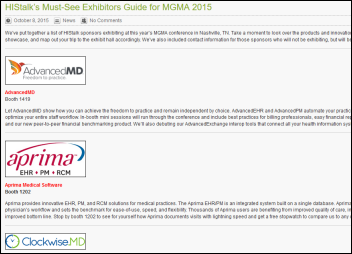
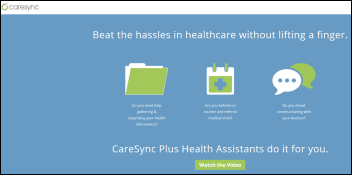


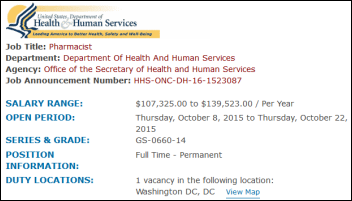
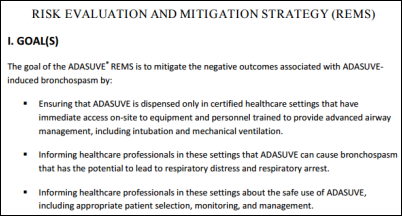

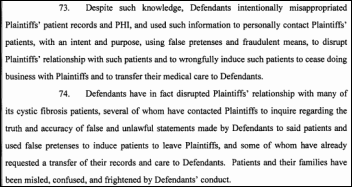

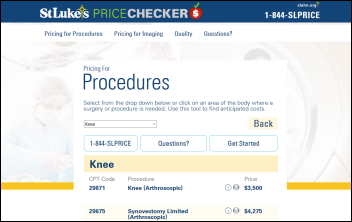

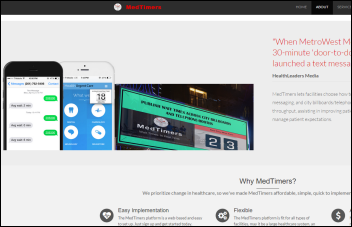
Re: Caresync raising $18Million in series B funding led by Merck Global Technologies– they are proving to be the market leader in providing turnkey Chronic Care Management services for the new CMS program
You have proof now that what is in a Company’s name does not always reflect well on the Company.
Trizetto purchased BY COGNIZANT is not “AWARE OF” their sponsorship of your Blog. Thanks for the Laugh today. I needed something to distract from ICD-10 Hell Week.
You suggest that out of network is a scam perpetrated by the providers. Nothing is further from the truth. The reason providers remain out of network is because of unfair payment contract terms from the insurers.